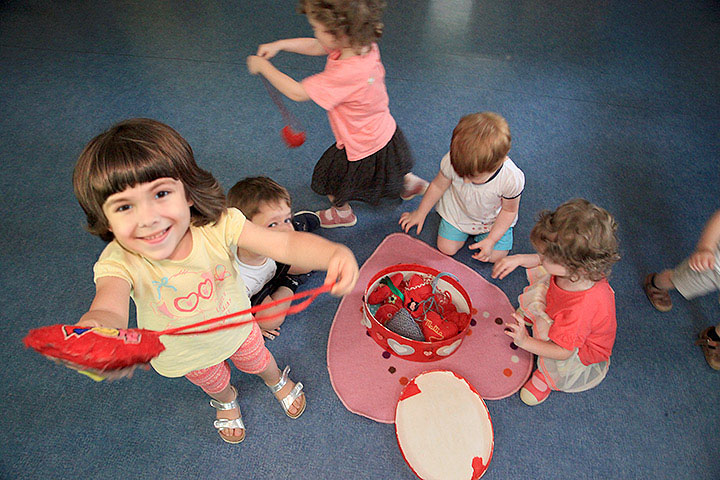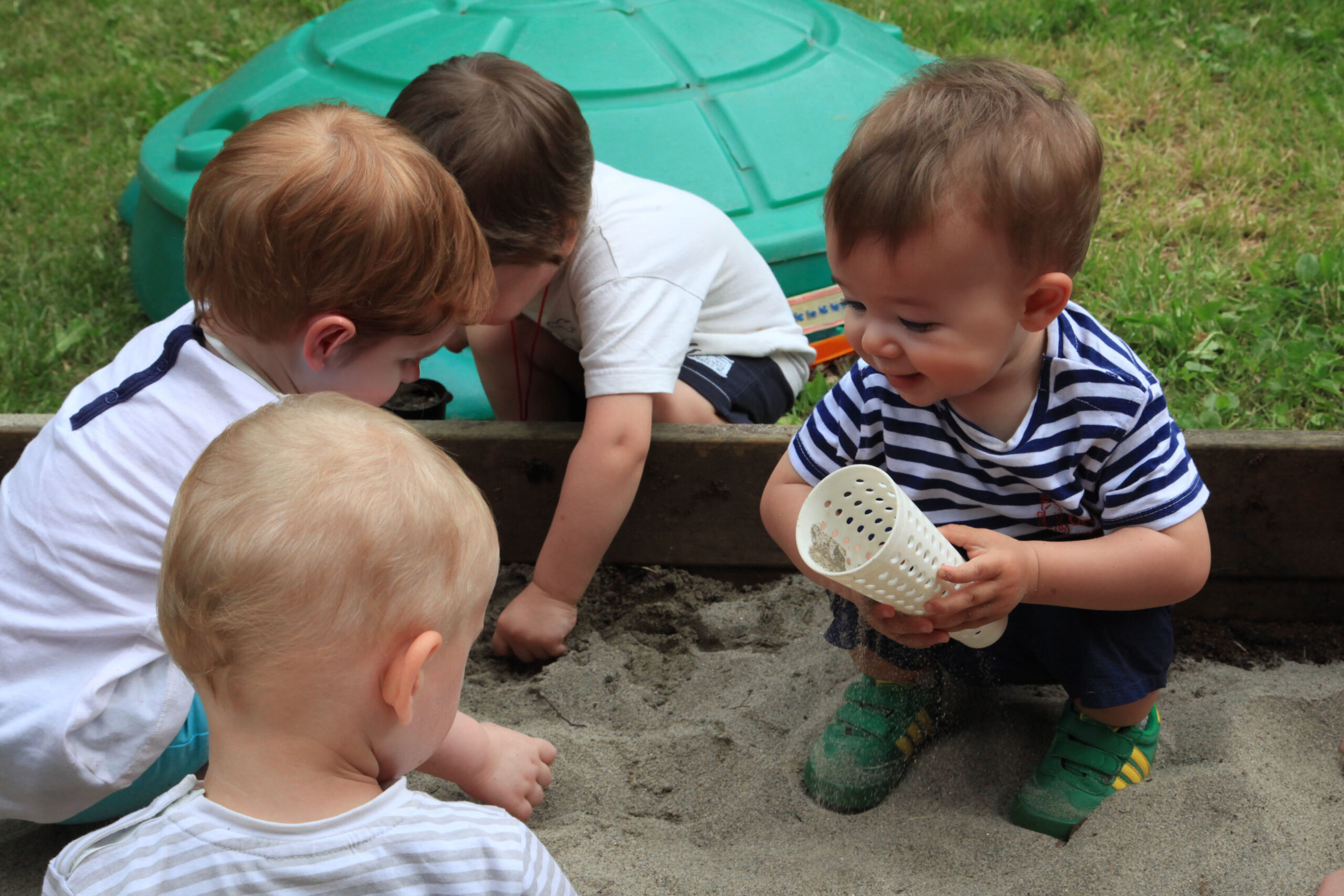Educational Approach
The educational approach implemented by Gioiosa is based on an image of the child considered unique, original and full of possibilities since the day they were born.
The task of the educator is to ensure that those possibilities can take shape to allow the child to express themselves and develop holistically from their strengths and individuality.
The holistic development is promoted through a variety of languages (including tales, nature, arts, and music), which are identified as opportunities for the child to grow self-esteem and self-awareness.
The educational team is supported by a psycho-pedagogist as well.
A great focus of the approach is based on the harmonic development of all faculties and vocations of the child with formative projects rather than informative ones. All educational projects are implemented with respect to the uniqueness of the child and the enhancement of the role of the parents.
The main aspect of the approach is the educational style, all intentional teaching practices are finalized to creatively discover knowledge and self-realization. We believe that the child owns all the possibilities and human values within themselves: the role of the educator is therefore to create the right conditions for the child to explore them effectively creating their personality.

The principles inspiring the approach are:
THE EDUCATION ROLE OF CULTURE
Gioiosa bases its teaching methodology on multiple cultural languages that play a fundamental educational role because they stimulate the process of identity construction and promote a sense of belonging to the community in which they live. Particular attention is given to the narrative language of fairy tales and myths.
Fairy tales and myths, with their symbolic images, are chosen based on the specific growth needs of each age group and allow the child to identify with the events narrated, to bring order to his inner movements, and to orientate himself in a world that for him is all about knowing and decoding.
THE TRIADE: Alliance between school and family.
When enrolling their children in Gioiosa, parents enroll themselves too because the association is based on an EDUCATIONAL AGREEMENT between families and schools where the role of parents is valued and consistent conversations are facilitated throughout educational projects. Parents are considered precious allies as regards co-constructed educational actions implemented. The educational alliance provides families with consistent feedback and opportunities for dialogue on specific topics aiming to enhance educational roles and promote shared educational responsibility. This alliance allows the child to develop a sense of wellbeing and approach his learning journey with joy (the term Gioiosa in Italian means joyful).

RELATIONSHIP: RESPECT AND TRUST
Gioiosa promotes a pedagogy of relationships that results in an environment that helps the child “feel” at ease in being part of the school/nursery community. The child is encouraged to share his/her needs with other children in an atmosphere of trust and mutual respect. Relational life at Gioiosa is characterized by structured moments of ritual and sharing, to encourage the child to feel an active and purposeful part of a human circle. The children’s relationships with each other and with the caregivers are an important factor in promoting social competence.
EMOTIONAL EDUCATION
Gioiosa’s scope is to support each child’s development as a whole, facilitating not only cognitive but also emotional skills and the overall holistic development of the child. Helping children recognize, identify, and express their emotions and feelings, allows them to freely and healthy acknowledge them throughout their daily routines and in their future lives.
Children can understand that emotions can be given a name, and by recognizing them children can express them, recollect them and use them to gain knowledge.
Listening to emotional needs and cultivating feelings are constant references for all educational projects and experiences provided.
“Neglecting emotions is the highest risk that a child can run into when going to school” (U. Galimberti)
SOCIAL COMPETENCE
Gioiosa strongly believes in the importance of fostering social competence, which can be defined as being able to live in harmony with self and others. The child is supported and encouraged to grow a sense of respect and acceptance for diversity, identified as an opportunity for enrichment of their individuality.
Each child is given a task (compito), a responsibility: he/she is called to donate to the group their skills, take over roles that can support individual development, social identity, and self-awareness while at the same time developing respect for what’s different.


